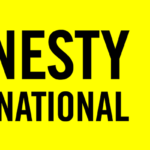AI index: ASA 33/001/2009
Date 25 February 2009
Pakistan: Resolve hundreds of Baluch ‘disappearances’
The Pakistani government must immediately act on its commitment to trace hundreds of Baluch victims of enforced disappearances, Amnesty International said today.
The organization also calls on the United Nations to raise the issue of enforced disappearances in Pakistan at the 10th session of the Human Rights Council (Geneva, 2 – 27 March 2009) to follow up on Pakistan’s previous pledges to begin to resolve the issue.
Despite several pledges to resolve the country’s crisis of ‘disappearances’, Pakistan’s new civilian government has not yet provided information about hundreds of cases of people believed to be held secretly by the government as part of the so-called war on terror, or in
response to internal opposition, for instance in Baluchistan. The Chief Minister of Baluchistan pledged in April 2008 that resolving the cases of Baluch
disappearances would be a priority. In May 2008, Senator Babar Awan, the Secretary of the ruling Pakistan People’s Party Reconciliatory Committee on Baluchistan, announced the creation of a committee headed by Nawabzada Haji Lashkri to trace disappeared persons of Baluchistan as part of its efforts to address Baluch grievances.
To date the government has not revealed the findings of its investigations or any actions it has taken to resolve the Baluch enforced disappearance cases.
According to press reports, on 14 February Interior Ministry Adviser Rehman Malik stated that the Baluchistan Chief Minister had given the government an “incomplete list of 800 ‘missing’ people”, of which 200 names on the list had been verified. A hitherto unknown separatist group, the Baluchistan Liberation United Front, on 2 February kidnapped John Solecki, head of the office of the UN High Commissioner of Refugees in Quetta.
The BLUF (not to be confused with the long established Baluchistan Liberation Front) claims that 6,000 Baluch activists have gone “missing”. The BLUF also claims that 141 Baluch women are among the disappeared. The group demanded their release in exchange for Solecki’s return. The Pakistani government has denied the allegations.
Amnesty International condemns the kidnapping of John Solecki and calls for his immediate and unconditional release and points out that hostage-taking is a crime under international law. Acts of enforced disappearance violate several provisions of Pakistan’s Constitution, including freedom from arbitrary detention, the right to judicial overview of detentions and to human dignity and the prohibition of torture, as well as constituting criminal offences. Pakistan has still not acted on its promise made in May 2008 that it would accede to International Convention for the Protection of All Persons from Enforced Disappearance. At the meeting of the Working Group on the Universal Periodic Review of the UN Human Rights Council (UPR), on 8 May 2008, Pakistan’s representatives declared that its security forces trained in international humanitarian law and were fully accountable. In a written statement in response to the UPR, the permanent representative “vowed to investigate” disappearances.
Amnesty International has on several occasions called the government to account on this issue. In 2008, the organization used official court records and affidavits of victims and witnesses of enforced disappearances to show how government officials, especially from the country’s security and intelligences agencies, were resorting to a variety of tactics to conceal enforced disappearance. These include: denying detention takes place and denying all knowledge of the fate and whereabouts of disappeared persons; refusing to obey judicial orders; concealing the identity of the detaining authorities, for example by transferring the disappeared to other secret locations, threatening harm or re-disappearance and levelling spurious criminal charges to conceal enforced disappearances (See: Amnesty’s report, Denying the Undeniable: Enforced Disappearances in Pakistan http://www.amnesty.org/en/library/info/ASA33/018/2008/en). Amnesty International urges the Pakistani government to immediately resolve all acts of enforced disappearance; to ensure the immediate release of all persons held in secret detention unless they are transferred to official places of detention, charged with a recognizably criminal offence and remanded by an independent court; and to bring to justice officials found responsible. Victims, including families of those disappeared, should be granted reparations in accordance with international standards.
Background
Baluchistan has a history of insurgency with local groups advocating greater autonomy. Four waves of violent unrest took place in 1948, 1958-59, 1962-63 and 1973-77. In early 2005, tensions in Baluchistan again increased, with numerous clashes reported between security forces and Baluch tribesman. Local people in Baluchistan are demanding a bigger share of the revenue generated by the province’s natural resources, principally natural gas, which they believe now benefit other provinces. A number of Baluchi groups are seeking more rights for the province. Some of these groups have resorted to violence, while others are campaigning peacefully. The Pakistani national government has attempted to suppress this opposition by increasing the military presence in the region. Many people have died at the hands of the security forces in extrajudicial executions and deaths in custody, and thousands of people are reported to have “disappeared”. The confrontation between Baluch nationalists and the state is characterised by human rights abuses committed by all sides.
END/
Public Document
****************************************
For more information please call Carina Trimingham in Amnesty International’s press office in London, UK, on +44 20 7413 5871 or email: [email protected] International Secretariat, Amnesty International, 1 Easton St., London WC1X 0DW, UK
www.amnesty.org
Courtesy: AI


